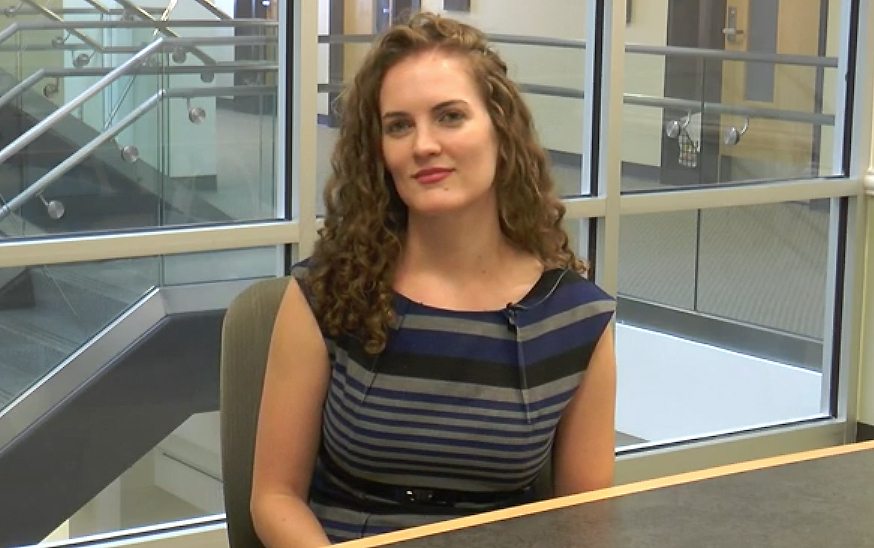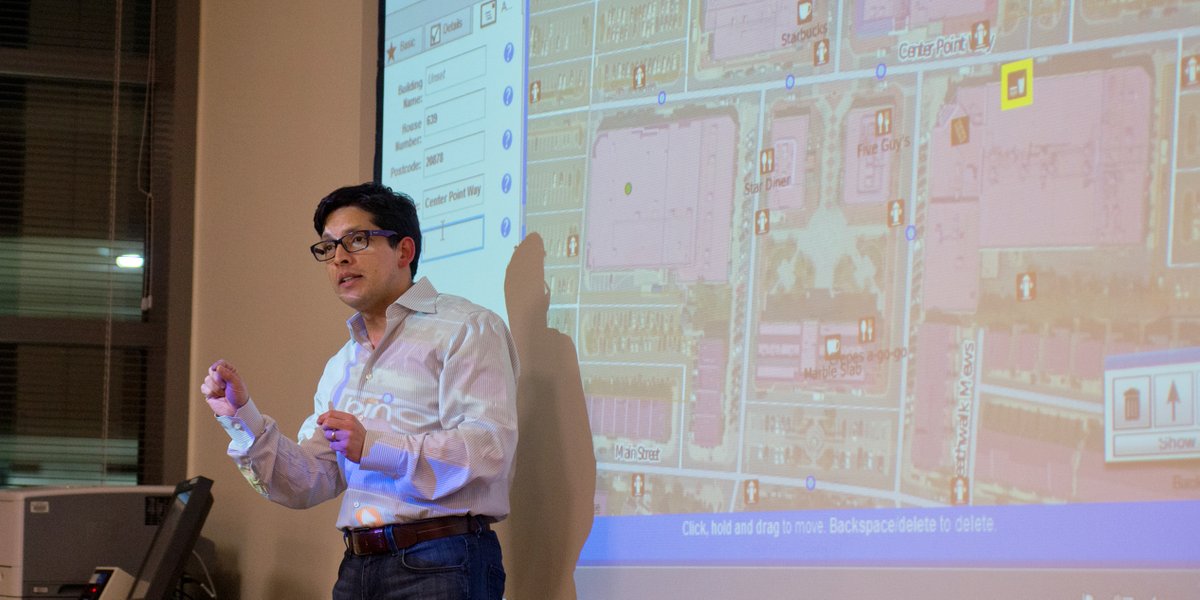Initially, Liz Ducey came from a biology background with the goal of working in environmental science. She went on to gain graduate credentials and professional connections from UMBC’s Geographic Information Systems Program. Utilizing her skills from the program, Liz became a geospatial analyst at a top global consulting firm. She describes her experiences in the classroom and the workplace, and the doors that the GIS graduate program opened for her.

Realizing New Opportunities
Liz gained the skills to work on various types of data across industries. She found that she could expand her horizons. Specifically, opportunities to work in environmental science, public safety, renewable energy, or fire and emergency services opened up with her knowledge and credentials. After taking the Geospatial Intelligence Seminar taught by a professor who worked at Booz Allen Hamilton, Liz realized a new category of jobs was available to her. At her current company, she applies her geospatial data analysis and cartography skills. Liz works in different capacities within projects for clients in these industries.
“I have fully embraced the jack of all trades ability that being a geospatial analyst entails, and look forward to working in new fields as my career continues.” – Liz Ducey, Alumna, UMBC GIS Graduate Program
Practicing Faculty in the GIS Graduate Program
The professors that Liz learned from in the program often held full-time GIS positions. Because of this, they offered real world experience and career connections. She noticed that faculty was very accessible. In particular, professors were responsive to technical or networking questions she had in the classroom or over email. Liz maintains some of her faculty connections to this day. She mentioned running into one professor in particular at industry conferences, where he continued to be helpful with her questions.
“Seeing examples of data used in real world examples allowed me and other students to better apply the knowledge and skills we developed to use in practical problems.” – Liz Ducey, Alumna, UMBC GIS Graduate Program

Flexible Courses and Work-Life Balance
Throughout the program, Liz was able to keep a full time job, and attend two to three classes a semester. She graduated with her degree in two years. All GIS Program courses are offered in the evening or weekends. Also, students can choose how many courses they take per semester to fit their lifestyle. Moreover, this flexibility allows students to further their professional lives with jobs or internships, or attend to other life commitments.
Professional Development
From an internship to full-time GIS positions, Liz has already had the opportunity to practice her skill set in various types of organizations and companies. Equipped with vital technical skills, she took her first GIS position as an intern at the National Resources Defense Counsel (NRDC). Liz’s UMBC connections helped her to continue to advance in her career. For instance, she discovered her first full time GIS position through a UMBC email track referral. She was offered the position as a GIS analyst for the state of Maryland’s Department of Mental Health and Hygiene. In March 2014, she took the next step in her career, becoming a geospatial analyst at Booz, Allen, Hamilton. Working within their defense and intelligence group, her projects have involved renewable energy, geospatial enterprise systems, fire emergency management systems, and geospatial policy clients.

In conclusion, UMBC’s GIS coursework and faculty supported Liz’s development of skills. Specifically, these include georeferencing, cartography, geospatial policy, version data within an enterprise system, and digitizing. Ultimately, she sites each of these technical areas as invaluable in her daily professional life.
“The best part of the degree, in my opinion, was the technical side of GIS that you get to cover. A lot of these things aren’t covered in other degrees and this gives you a leg up in the work environment.” – Liz Ducey, Alumna, UMBC GIS Graduate Program
